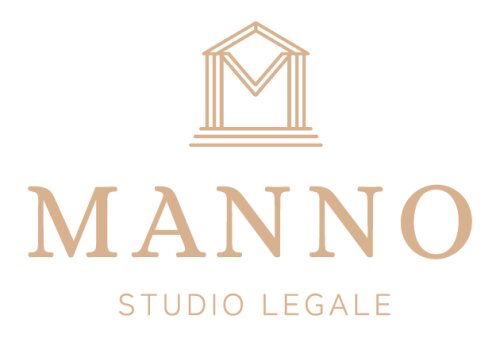Best Lawsuits & Disputes Lawyers in Lecce
Share your needs with us, get contacted by law firms.
Free. Takes 2 min.
List of the best lawyers in Lecce, Italy
Italy Lawsuits & Disputes Legal Questions answered by Lawyers
Browse our 1 legal question about Lawsuits & Disputes in Italy and read the lawyer answers, or ask your own questions for free.
- informations
- We have a supplier in China from whom we buy a traction coupling spring. The spring is used in lifeline cases, like for the safety of the operators on rooftops. We have been buying this product since 2023. At the start, we sent a sample for our supplier to study... Read more →
-
Lawyer answer by ILF LAW FIRM
Hi,We understand the gravity of the situation you are facing with your supplier in China regarding the defects found in the coupling springs. We can answer your questions and provide some useful information regarding Chinese law and the options available...
Read full answer
About Lawsuits & Disputes Law in Lecce, Italy
Lawsuits and dispute resolution are integral parts of the Italian legal system, including Lecce. Whether arising from civil, commercial, labor, or property issues, these legal matters are governed by both national Italian laws and, where applicable, local regulations. Lecce, as a city in southern Italy, handles such cases in its local courts, providing mechanisms for litigation, mediation, and arbitration. Individuals and businesses alike may find themselves engaged in disputes ranging from contract disagreements to inheritance issues. Understanding the basics of lawsuits and dispute resolution in Lecce is essential for anyone facing legal challenges in the area.
Why You May Need a Lawyer
There are many situations where the assistance of a qualified lawyer becomes necessary in lawsuits and disputes. Common scenarios include:
- Business or contractual disagreements with other parties.
- Property disputes, including boundaries, ownership, or tenancy issues.
- Family law matters, such as divorce, child custody, or spousal support claims.
- Personal injury claims resulting from accidents or negligence.
- Collection of debts or enforcement of payments.
- Defamation, slander, or other harm to personal reputation.
- Disputes regarding inheritance or succession rights.
- Employment and labor law conflicts.
- Consumer disputes with service providers or vendors.
Lawyers provide guidance on legal procedures, help draft and review documents, represent clients in court, and work towards settlements or alternative dispute resolutions. Their expertise can be critical in navigating the often complex Italian legal landscape.
Local Laws Overview
Lecce, as part of the Italian Republic, primarily follows national laws and procedures regarding lawsuits and disputes (including the Codice di Procedura Civile for civil cases). However, there may be local court practices and administrative requirements unique to Lecce. Key aspects include:
- Court Structure: Lawsuits are typically filed in the Tribunale di Lecce (Court of Lecce). For cases involving smaller amounts, conciliation bodies or Giudice di Pace may be used.
- Mandatory Mediation: Certain disputes (e.g., condominium, property, inheritance, family matters) require parties to attempt mediation before proceeding to court.
- Limitation Periods: There are strict timelines within which lawsuits must be initiated, varying based on the nature of the dispute.
- Legal Documentation: Documents must be prepared in accordance with Italian law and, where necessary, translated into Italian.
- Legal Costs: Costs can include court fees, lawyer’s fees, and, in some cases, costs awarded to the winning party.
A local lawyer can help clarify how these factors apply specifically to your situation in Lecce.
Frequently Asked Questions
How do I file a lawsuit in Lecce?
You must submit a formal document (atto di citazione or ricorso) to the competent court, often with the assistance of a lawyer. The process typically begins with mediation if required, followed by court proceedings if no settlement is reached.
Is mediation mandatory before going to court?
Yes, for certain types of disputes such as property, inheritance, and family matters, Italian law requires parties to attempt mediation before advancing to litigation.
Which court handles disputes in Lecce?
Most disputes are handled by the Tribunale di Lecce. Smaller claims or less complex cases may be resolved by the Giudice di Pace.
Can I represent myself in court?
While individuals have the right to self-representation in some cases, complex matters usually require legal representation. For claims above a certain monetary threshold, employing a lawyer is mandatory.
How long do court proceedings typically take?
The duration can vary from a few months to several years, depending on the complexity of the case, the court’s schedule, and whether appeals are filed.
What are the costs associated with filing a lawsuit?
Costs include court fees, administrative charges, and lawyer’s fees. The losing party may also be ordered to pay the other side’s legal expenses.
Are court documents required to be in Italian?
Yes, all court documents must be in Italian. Foreign documents must be officially translated and, in some cases, legalized.
Is it possible to settle disputes without going to court?
Yes, mediation and arbitration are common alternatives to litigation in Lecce, and often result in faster, less expensive resolutions.
What are the limitation periods for filing a lawsuit?
Limitation periods vary by the nature of the claim; for instance, general contractual disputes have a 10-year limit, while some claims may have shorter or longer deadlines.
What happens if I lose a lawsuit?
If you lose, you may have to pay the winning party’s legal costs and possibly other damages. However, you have the right to appeal the judgment within specified timelines.
Additional Resources
If you need further information or support in Lecce regarding lawsuits and disputes, the following resources may be helpful:
- Ordine degli Avvocati di Lecce: The local bar association provides information on qualified lawyers in the area.
- Tribunale di Lecce: The courthouse offers resources and information about filing procedures and ongoing cases.
- Consiglio Nazionale Forense: The National Bar Council provides guidance on Italian legal professionals and their areas of expertise.
- Mediation Centers: Official mediation centers approved by the Ministry of Justice are available in Lecce to assist with mandatory or voluntary mediation.
- Comune di Lecce - Legal Affairs Office: The local municipality often provides information or referrals for legal issues affecting residents.
Next Steps
If you find yourself involved in a lawsuit or dispute in Lecce, Italy, consider the following steps:
- Gather Documentation: Collect all relevant contracts, correspondence, and evidence related to your dispute.
- Consult a Lawyer: Seek advice from a qualified local lawyer who specializes in lawsuits and disputes to evaluate your case and explain your options.
- Consider Mediation: Determine if your dispute requires or would benefit from mediation before proceeding to court.
- Understand Timelines: Be aware of statutory deadlines to ensure your case can be filed and heard.
- Budget for Costs: Discuss potential costs with your lawyer, including court fees and legal representation expenses.
- Initiate Legal Action: With your lawyer’s assistance, file the appropriate legal documents at the correct court or mediation body.
- Attend Required Meetings or Hearings: Be present at all required mediation sessions, court dates, or evidence presentations as advised.
Navigating lawsuits and disputes in Lecce can be complex, but with proper legal support and by understanding local procedures, you can protect your interests and work toward a fair resolution.
Lawzana helps you find the best lawyers and law firms in Lecce through a curated and pre-screened list of qualified legal professionals. Our platform offers rankings and detailed profiles of attorneys and law firms, allowing you to compare based on practice areas, including Lawsuits & Disputes, experience, and client feedback.
Each profile includes a description of the firm's areas of practice, client reviews, team members and partners, year of establishment, spoken languages, office locations, contact information, social media presence, and any published articles or resources. Most firms on our platform speak English and are experienced in both local and international legal matters.
Get a quote from top-rated law firms in Lecce, Italy — quickly, securely, and without unnecessary hassle.
Disclaimer:
The information provided on this page is for general informational purposes only and does not constitute legal advice. While we strive to ensure the accuracy and relevance of the content, legal information may change over time, and interpretations of the law can vary. You should always consult with a qualified legal professional for advice specific to your situation.
We disclaim all liability for actions taken or not taken based on the content of this page. If you believe any information is incorrect or outdated, please contact us, and we will review and update it where appropriate.
Browse lawsuits & disputes law firms by service in Lecce, Italy
Lecce, Italy Attorneys in related practice areas.











